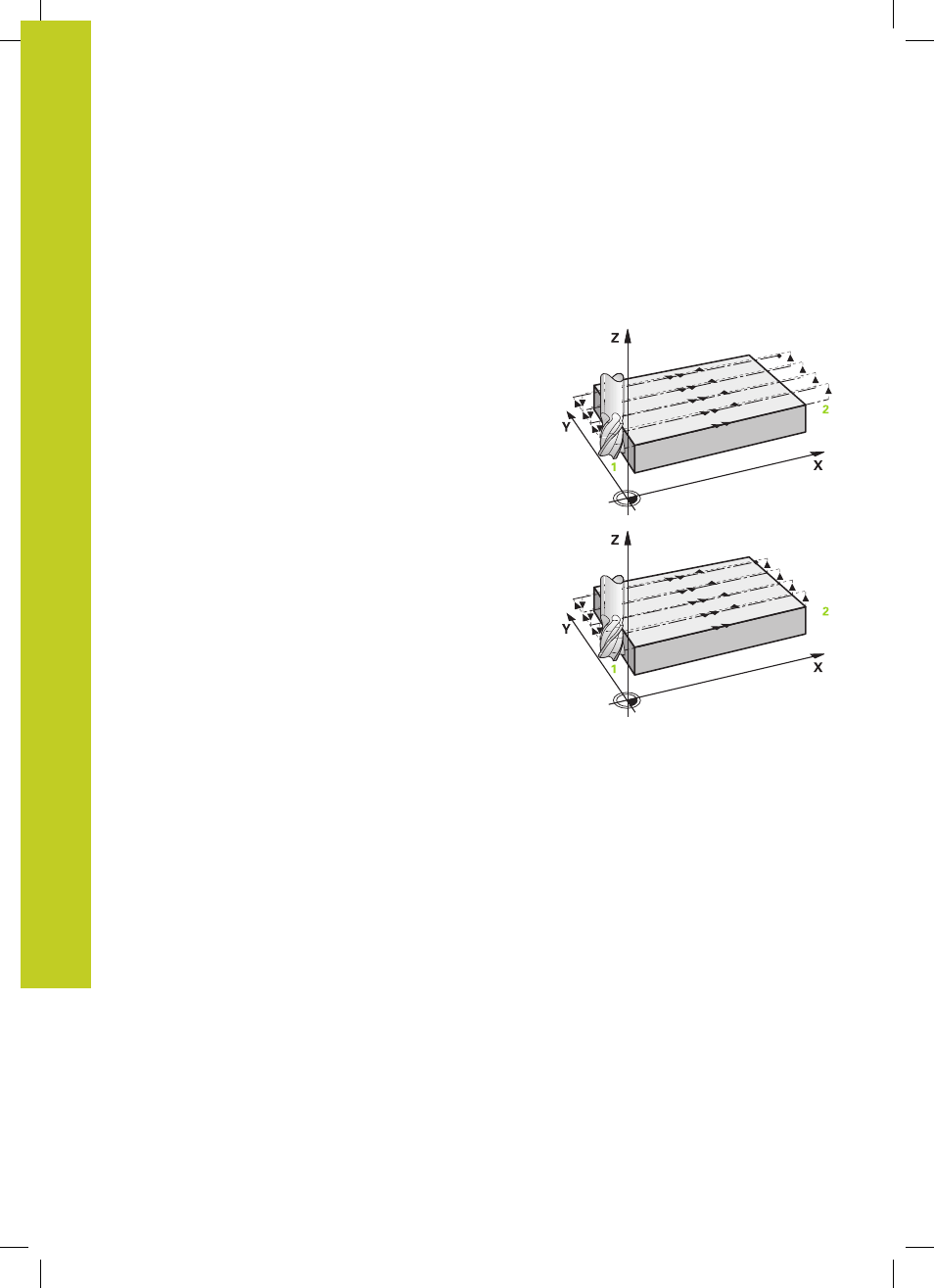HEIDENHAIN TNC 128 (77184x-02) User Manual
Page 438

Fixed cycles: Pocket milling / stud milling
17.4
FACE MILLING (Cycle 233)
17
438
TNC 128 | User's Manual HEIDENHAIN Conversational Programming | 5/2014
10 The process is repeated until all infeeds have been machined. In
the last infeed, only the finishing allowance entered is milled at
the finishing feed rate.
11 At the end of the cycle, the tool is retracted at
FMAX to the 2nd
set-up clearance.
Strategies Q389=2 and Q389 =3
The strategies Q389=2 and Q389=3 differ in the overtravel during
face milling. If Q389=2, the end point lies outside of the surface. If
Q389=3, it lies at the edge of the surface. The TNC calculates the
end point
2
from the side length and the safety clearance to the
side. If the strategy Q389=2 is used, the TNC additionally moves
the tool beyond the level surface by the tool radius.
4 The tool subsequently advances to the end point
2
at the
programmed feed rate for milling.
5 The TNC positions the tool in the spindle axis to the set-up
clearance over the current infeed depth, and then moves at
FMAX paraxially back to the starting point in the next line. The
TNC calculates the offset from the programmed width, the
tool radius, the maximum path overlap factor and the safety
clearance to the side.
6 The tool then returns to the current infeed depth and moves in
the direction of the next end point
2
.
7 The multipass process is repeated until the programmed
surface has been completed. At the end of the last path, the
TNC positions the tool at rapid traverse
FMAX back to the
starting point
1
.
8 If more than one infeed is required, the TNC moves the tool in
the spindle axis to the next plunging depth at the positioning
feed rate.
9 The process is repeated until all infeeds have been machined. In
the last infeed, only the finishing allowance entered is milled at
the finishing feed rate.
10 At the end of the cycle, the tool is retracted at
FMAX to the 2nd
set-up clearance.
